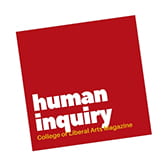A turning point is a moment of decision and change of situation in life. In history and in fiction, events are considered turning points when they mark the moment when things begin to change. It is no wonder, then, that turning points are important to critical theory and to how we understand the stories that we tell.
Turning points are important moments of interpretation, says Rob Tally, professor of English. In his new article, “Swerve, Trope, Peripety: Turning Points in Criticism and Theory,” published in The Journal of English Language and Literature, he argues that identifying a turning point is an act of interpretation. Tally describes three different turning points as object lessons: swerves, or points of departure; tropes, or figurative ruminations; and peripety, or changes of fortune. “The work of the critic often involves locating and making sense of those turning points in a given narrative, broadly conceived,” says Tally.
In interpreting turning points, critics and thinkers make sense of a story, and they read into it what matters to their society and time. With each type of turning point, “it is assumed that the critic’s tasks include the identification, analysis, evaluation, and theorization of turning points, for these are the sites of novelty, difference, force, and significance in cultural work,” Tally writes. “These also serve as turning points—that is, points of departure, points of shifting meaning, and points of dramatic reversals—in our own work, which can only benefit from our awareness of its scarcely controllable dynamism.” How we understand moments of change and departure says as much about us, the readers, as it does the subject matter.
Because turning points are important in the study of history, literature, policy and other fields, Tally’s insight can help enrich the discourse in several disciplines.
